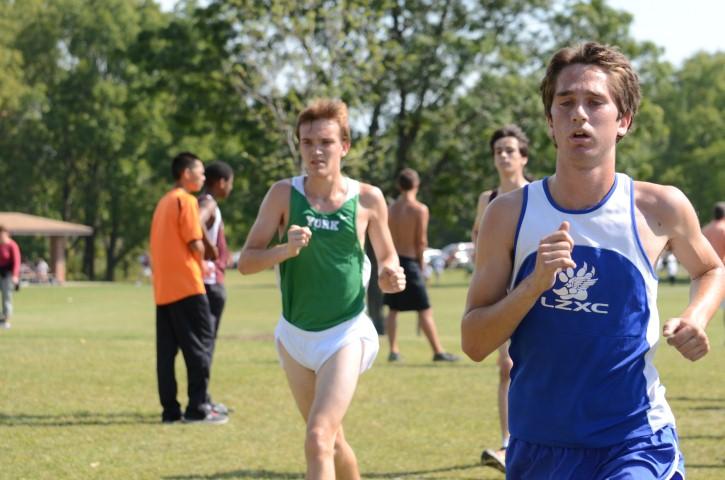Students are used to tests, but two years ago, a single test flipped one student’s life upside down. This year, a lot of thinking, planning, and examining the options flipped his life back upright.
Jack Herman, senior, was diagnosed with Hypertrophic Cardiomyopathy (HCM) his sophomore year after an EKG test, which is a heart disease that left him unable to participate in any physical activity. However, Herman had heart surgery at the end of his junior year in order to allow him to return to the sport he loves: distance running.
“Running again is just an indescribable feeling,” Herman said. “I felt happy. Honestly, I felt free finally. I felt exhausted after the run because I hadn’t run in a year and a half. You feel like you can do anything. And after I ran my first mile, I was just like ‘I want to run another mile and another mile.’ You miss it, and you want to do it as much as you can.”
Herman did run as much as he could, or, he said, more than he could. The doctor told Herman he could only run one mile, so Herman only ran one mile, but he did it three times a day.
“Getting back to running is amazing,” Herman said. “I love it. It’s the best feeling being able to be out there with my teammates. It’s an amazing feeling because every time I run, I feel like I shouldn’t even be running right now. It’s a miracle that I’m running, so no matter what, it’s a good run every time.”
Although Herman believes getting the surgery was the best decision for him, he said that hours of thought went into the decision to go through with it.
“I wanted to get the surgery much sooner that I did because of my passion towards high school distance running,” Herman said,” but the decision was also my parents’ decision. The main reason why we did it is because I could have died at any point. I could have died sitting down watching TV, or I could’ve died at a concert, or running playing basketball with my friends when I shouldn’t have been. My heart could have stopped working at any time, and now, if that were to happen, I would be safe [because the devices in my heart would restart it.]”
Even though the surgery allowed Herman to return to running, his physical abilities and his life will never be completely back to normal.
“I’m still limited in activities, and I always will be, it’s just different activities now,” Herman said. “I was limited in fatigue activities, now I’m limited in activities involving stress on my left arm. I can’t lift over ten pounds with my left hand; I’m not supposed to close or open doors with my left hand; I can’t lift weights with my left arm. The device is implanted above my heart and has wires attached to my heart that attach to veins in my arm, so the tugging of it could unplug the wires in my arms, making them useless.”
Despite developing new limitations, Herman said he has learned valuable lessons from having running taken away from him and given back again. Herman wishes to spread these lessons to every one of his other teammates.
“Teammates will come up to me and ask ‘how was your run?’ and I say, ‘at least I’m running,’” Herman said. “I say the same thing when people come back and say their run was hard: ‘at least you’re running.’ And they look at me and say, ‘you’re right.’ That’s what I try to teach kids now that I’m back to running: you want to be the best runner you can be because you’ve never had anyone look at you and say you can’t become a better runner anymore. And I’ve had that feeling.”
J.B. Hanson, boys’ cross country head coach, said that Herman succeeded at teaching his teammates.
“The team respects him because of what he went through and his dedication to the team, despite what he has gone through,” Hanson said. “He’s probably been through more than anybody else has, and it teaches everybody how precious life is and how special this sport can be and to take advantage of everyday and every opportunity you have to do it.”
Herman agrees that people need to take advantage of the opportunity to run.
“This experience makes me want to change people’s mindsets,” Herman said. “People say, ‘I have to run.’ Well, I want them to start saying, ‘I want to run,’ ‘I get to run.’ Because you really do get to run. It’s not something you can take for granted.”

